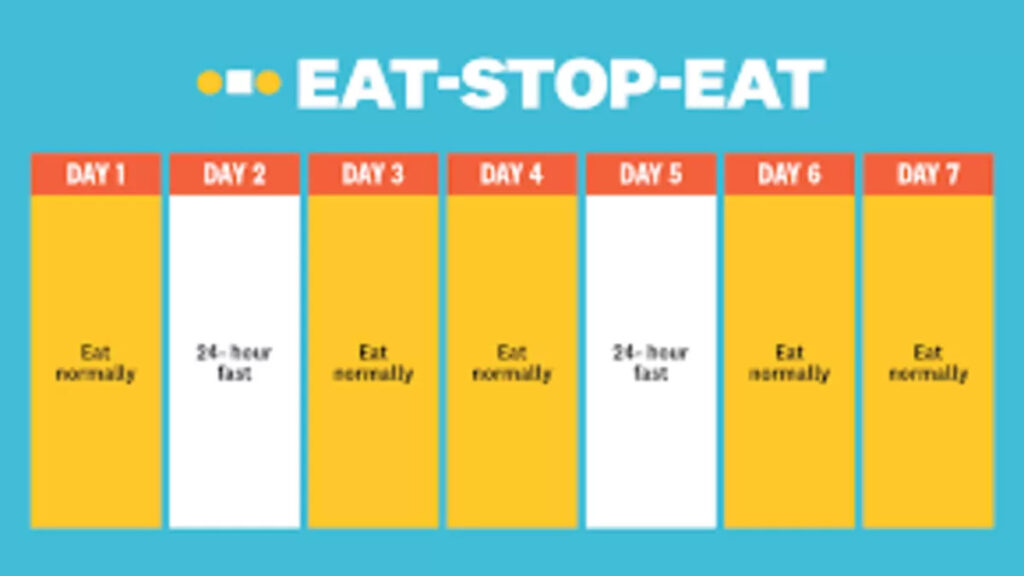The power of Mindful Eating and Intermittent Fasting
Women’s health and wellbeing have assumed a prominent role in the fast-paced society of today. Many people are investigating alternatives to conventional diets in their search for efficient and sustainable wellness techniques. Intermittent fasting is one method that has drawn a lot of interest. In this write-up, we’ll explore intermittent fasting’s transforming potential, particularly for the wellbeing of women. We’ll discuss its advantages, respond to frequently asked questions, and provide insightful advice for people thinking about changing their way of life.

The Beauty of Intermittent Fasting
Understanding Intermittent Fasting
A pattern of eating called intermittent fasting is not a diet in the traditional sense. This strategy alternates between eating and fasting. It stresses when to eat certain foods rather than what foods to eat. Intermittent fasting, which has its roots in human evolution, imitates the eating patterns of our prehistoric predecessors, who did not always have access to food.

Hormone Balance for Women’s Wellness
Intermittent fasting’s Major Advantages for Hormone Balance
The foundation of women’s general health is hormonal balance, which affects mood, metabolism, and energy levels. Hormonal homeostasis is significantly impacted by intermittent fasting. According to research, it improves insulin sensitivity, controls blood sugar levels, and lowers the risk of type 2 diabetes. In addition, it promotes the synthesis of human growth hormone (HGH), which helps with muscular building and fat burning.
Dispelling the Caloric Restriction Myth with Intermittent Fasting and Women
There are also worries that the stringent calorie restriction associated with intermittent fasting might result in nutritional deficits. But when done properly, intermittent fasting may encourage mindful eating and discourage overconsumption. It focuses people instead on eating nutrient-rich meals during set eating periods rather than constantly nibbling.
Taking Care of Hormonal Issues
Critics worry that women’s hormonal health may be negatively impacted by intermittent fasting. However, evidence indicates that carefully planned intermittent fasting doesn’t always cause hormone disruption. Actually, by lowering inflammation and encouraging effective hormone synthesis, it can support hormonal balance.
Success Stories on the Road to Empowerment

Real-Life Changes that occurred as a Result of Intermittent Fasting
Numerous women have had amazing breakthroughs as a result of intermittent fasting. Their success stories are incredibly motivating, from losing extra weight and getting more energy to having better mental clarity. One person stated, “Intermittent fasting granted me the freedom to savor food without guilt and helped me regain control over my eating habits.”
Getting Out of the Diet Cycle
Many women become caught in a loop of limiting their diets and then bingeing as a result. This pattern may be broken by intermittent fasting, which also promotes a better connection with food. It fosters deliberate feeding rather than starvation.
Using Intermittent Fasting to Your Advantage
Individual Needs-Oriented Design
There is no one universal strategy for intermittent fasting because every woman’s physiology is different. The key is experimentation and adaptation. While some people might favor the 16/8 technique, others could do well with the 5:2 strategy. The best course of action for your way of life may be decided by paying attention to your body and seeking the advice of a healthcare professional.

Including Physical Exercise
Intermittent fasting is most efficiently complemented with physical exercise. Regular exercise done throughout meal periods can increase the advantages of fasting. Being active, whether via yoga, brisk walking, or strength training, is in line with the holistic wellness philosophy.
Adopting a healthier future
Intermittent Fasting: A Healthy Alternative
Intermittent fasting is becoming a feasible choice as more women look for powerful and long-lasting wellness options. Women may begin a path toward improved overall wellbeing by understanding its principles, eliminating myths, and getting inspiration from success stories. The goal is to take charge of one’s health, develop a healthy connection with food, and adopt a lifestyle that supports both the body and the mind. It is not only about losing weight.
In conclusion, intermittent fasting offers a path to empowerment.
Intermittent fasting shows promise as a route to women’s empowerment in a world overrun with diet fads and contradicting wellness advice. It is a comprehensive strategy that addresses both physical and emotional wellbeing; it is not a fast fix. Women can discover long-lasting wellness secrets by adopting an intermittent fasting lifestyle while receiving the right instruction and maintaining a positive outlook. Ask yourself, “Am I prepared to take the reins of my wellness?” as you think about this life-changing adventure.
Your search for a healthier, happier self could be complete if you incorporate intermittent fasting. Keep in mind that your path to wellness is unique, and intermittent fasting could just be the final piece in the puzzle.
FAQ:
1. Can women of any age engage in intermittent fasting?
Various age groups can benefit from intermittent fasting; however, individual needs may differ. Before making any big alterations to your food regimen, speak with a healthcare practitioner.
2. Is intermittent fasting safe for women who are nursing or pregnant?
Since their dietary requirements are different, intermittent fasting is often not advised for women who are pregnant or nursing. Before changing your diet while pregnant or nursing, always check with your doctor.
3. Will her menstrual cycle be affected by intermittent fasting?
The menstrual cycle is not expected to be affected by well-planned intermittent fasting. In fact, it may have a favorable effect on hormonal balance. However, speak with a medical professional if you notice any anomalies.
4. Can women who practice intermittent fasting lose muscular mass?
Intermittent fasting doesn’t necessarily result in muscle loss when done properly. In fact, it can encourage the synthesis of human growth hormone, which helps with muscle growth and preservation.
5. Which fasting technique is ideal for women?
There isn’t a method that works for everyone. While some women find success with the 16/8 technique (16 hours of fasting and 8 hours of eating), others prefer alternatives like the 5:2 strategy (5 days of regular eating and 2 days of calorie restriction). Try several things to see what works best for you.
6. How does fasting between meals effect one’s energy levels?
After getting used to intermittent fasting, lots of women report feeling more energetic. This impact is influenced by balanced hormones and stable blood sugar levels.
7. Is it possible to exercise regularly while fasting?
Intermittent fasting can indeed include physical exercise. Exercise can increase the advantages of fasting during meal periods. Focus on eating a balanced diet to help you exercise.
8. Will intermittent fasting cause me to lose weight quickly?
Although different people lose weight at different rates, intermittent fasting can help people lose weight when used in conjunction with mindful eating and moderate exercise. Rapid results are not as significant as sustained weight loss.
9. Can ‘IF’ assist those who overeat emotionally?
Intermittent fasting may help people have a better connection with food, yes. It promotes focused eating and lessens the propensity for mindless nibbling.
10. Is intermittent fasting a sustainable long-term strategy?
When it is tailored to you and incorporated into your daily routine, intermittent fasting may be sustained. It takes a comprehensive approach to wellbeing rather than being a quick fix.
Always get medical advice before beginning an intermittent fasting regimen because individual reactions to this dietary strategy might vary.
“Supercharge your intermittent fasting journey! Transform your body with our cutting-edge weight-loss products. Click now for instant vitality and unstoppable results. Elevate your health; seize the moment!”
